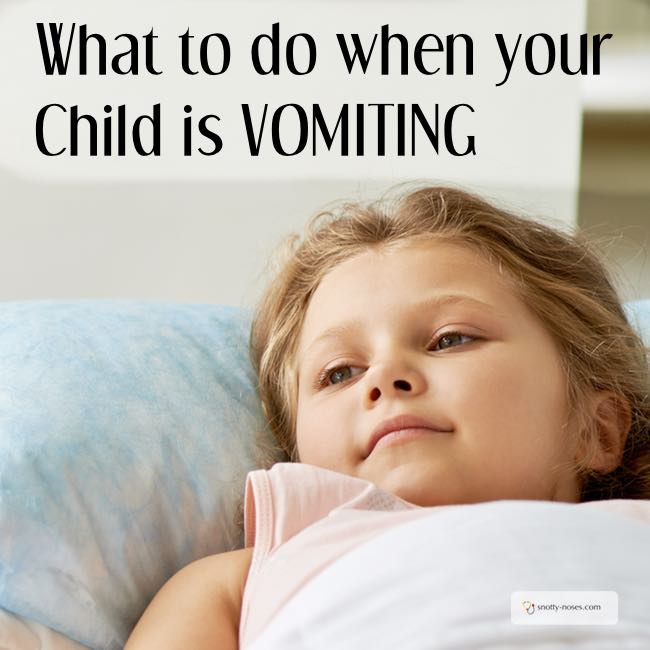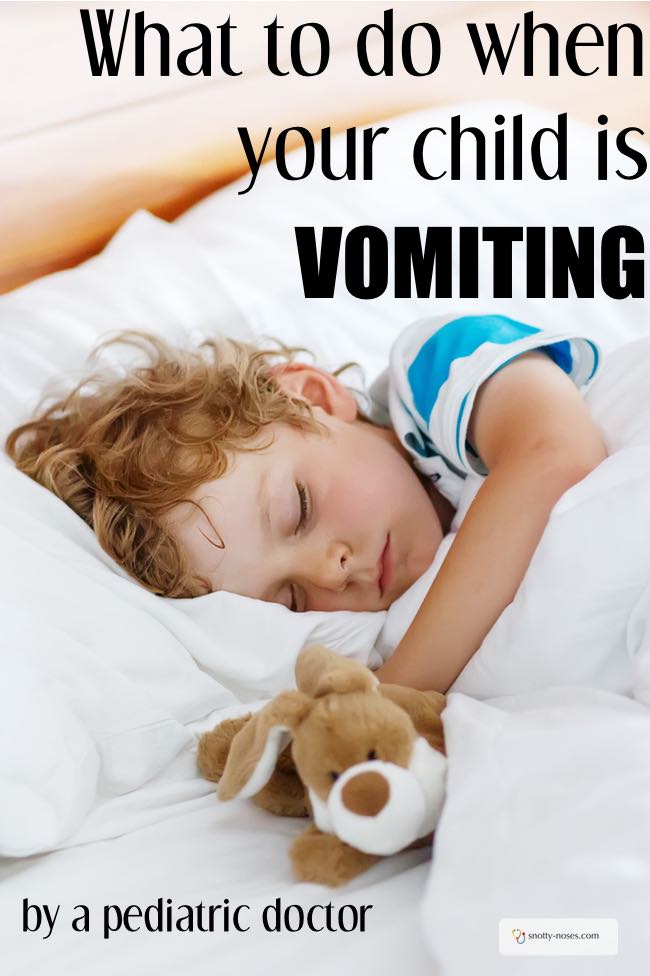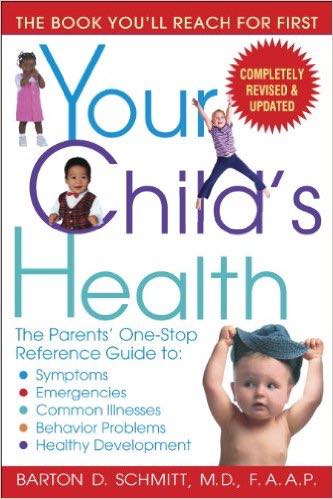Vomiting in Children
There are many causes of vomiting in children. The most common is simple gastroenteritis (aka a tummy bug), often accompanied by diarrhea. Vomiting in children is a very common part of your kids health. It is important to know what to do and to recognise when it is more than mild vomiting and when you need to visit the doctor.

What to do when your Child is Vomiting
The most important thing is to keep them well hydrated. If they don’t want to eat, don’t worry. I’m sure you wouldn’t want to eat either if you were vomiting.
Young children often do want to eat when they are vomiting. It can be difficult to explain that it’s not a good idea as they will probably vomit again. If they are very keen to eat, try a small amount of something bland such as a crust of bread.
Allow them to sleep if they want to, or to do a quiet activity such as watching the television. (One of the few times I don’t encourage my children to turn it off and go and do something else.)
If they have a fever you can give them some over the counter medicine to help reduce the fever and make them feel a little better. They may vomit it back up.
How do I Stop my Child from becoming Dehydrated?
Oral Rehydration Salts (ORS) are good if you are vomiting. They contain sugars and salts to replace the salts that your child is losing in the vomit.
If they don’t like ORS try water or water with sugar syrup. Fizzy drinks and fruit juice are not good as they are acidic and will probably come back up. Fizzy drinks that are left to go flat are alright.
You can also try freezing the ORS to make an ice pop or give ice chips for them to suck.
Breastfed babies can continue with breast milk.
See Also: Sign of Dehydration
It is important to offer small amounts of fluids frequently.
Start small, such as a teaspoon every 5 minutes.
If they don’t vomit, you can increase it a little bit.
If you allow them to drink a large amount, they will probably vomit again.
Go to the doctor if you are worried about:
- Green, red or black vomit
- Your child seems more unwell than normal
- They are getting worse
- High or prolonged fever
Bottom line. If you are not sure, go to the doctor.
Prevent Gastroenteritis Spreading
Remember to wash your hands carefully and frequently when looking after a child who is vomiting.
See Also: Signs of Serious Illness, Baby Vomiting

Further Reading

If you’d like to read more about your baby’s or child's health, Your Child’s Health is a comprehensive guide to child health. It includes every topic you’d like to read about from babies, through toddlers to older children. It has a great section on major symptoms including rashes.
It’s available either as a paper back or if you want it right now, you can buy it on kindle.
If you’re in the USA you can buy it here (affiliate link):
If you’re in the UK you can buy it here (affiliate link):
Emergency
When should I go to the doctor?
You should definitely seek medical advise if your child has any of the following symptoms:
- Vomit that is in anyway unusual (green, bloody or smelling of poo).
- Dehydration (particularly drowsy or not passing urine).
- If you feel they have been ill for a long time.
- High fever.
- Rash (especially a non-blanching rash that doesn’t disappear when a glass is pressed onto it).
- Eyes that seem to be always looking down, or different from normal.
- Breathing problems.
- Or you are concerned that they don’t just have a tummy bug.
- Or if you want to.

 Feeding Toddlers.
Feeding Toddlers. Would you like your kids to eat more healthily? Check out the book!
Would you like your kids to eat more healthily? Check out the book!